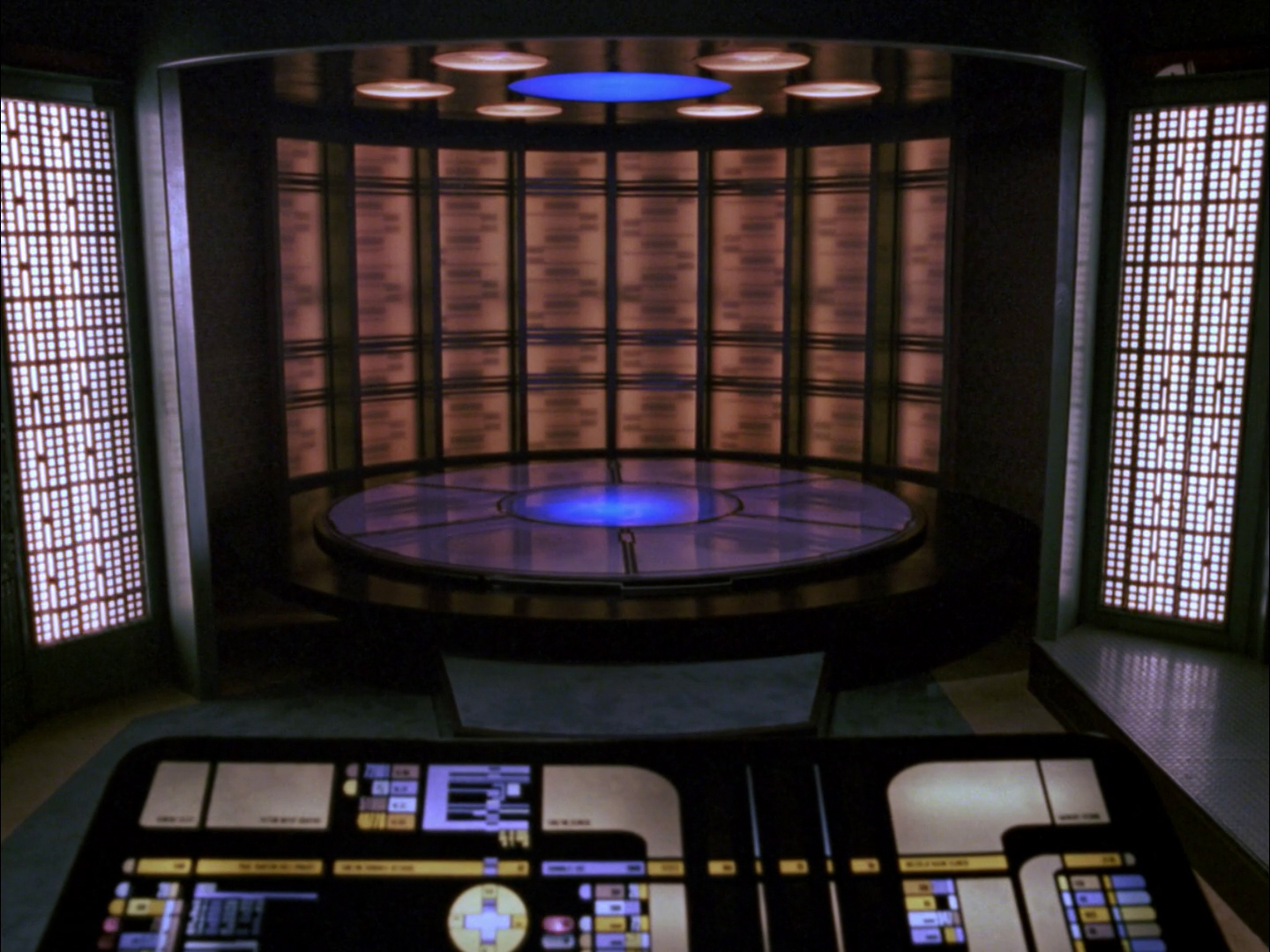
He looks shocked.
Mehby
Safety is no 1 priority!
We know this comment by Shannon Martin is correct and sensible because it was reviewed by Shannon Martin! As a licensed insurance agent, I’m sure she is qualified to talk about uh… electronics… hmm
This is the sort of person who thinks you need to ground yourself to be safe while working with electricity. Not 100% wrong, but just wrong enough to be very, very dangerous.
Some people know just enough to be dangerous.
For instance, an anecdote:
A nearby local hardware store put up a sign in 2017 and now this year, in front of the welding equipment, that says “WELDING GOGGLES DO NOT PROTECT EYES AGAINST THE SUN”
Now if they didn’t block uv from the sun, then they wouldn’t block uv from your welding arc.
BUT I 100% stand by their choice to put the sign up.
Because you need a certain shade or darker, and they sell a lot of different shades for different welding applications, including the safety tints people might want if they’re nearby and catch the occasional reflection.
And some people know enough to know welding arc = UV, sun = uv, and don’t stop to think about intensity.
In fact, in 2017, I knew someone who tried to use a #3 lense to look at the total eclipse, and as soon as the moon cleared moved enough for the sun to peek back, he deeply regretted not using a darker shade. Now has a weird spot in his vision that isn’t quite right.
A 3 is what my helmet gives me for grinding mode, that’s nothing.
I used a 10 or 11 for one eclipse and it worked alright.
Just ground your left hand while you work on it with your right hand. That way if it’s live it’ll quickly stop your heart and you won’t even know you died. No half measures!
Working with small ESD-sensitive electronics and using a proper grounding strap and mat with large resistors in series to provide protection from shock? Absolutely.
Wiring up a car battery or working with mains power? Absolutely not.
Car battery on its own won’t kill you, though wiring many in series might. There can also be some effects from DC sparks and welding on even 12V, which might cause other problems.
worst ai prompt
Looking passed the absolutely insane answer here, no one has even brought up the whole issue of AC vs DC. Batteries are DC, while your fridge that plugs into your wall running on AC. I know they make DC ones, but it isn’t like they are interchangeable.
Funny thing, most modern refrigerators use DC motors for their compressors so that they can run at variable speeds, so there’s likely an inverter that you could bypass if you know the appropriate voltage. The DC ones for RVs are the same internals, just without the inverter.
Correction: they still use AC motors, but those motors don’t use line AC. It goes line AC > rectifier > DC > inverter board > variable frequency AC to run the compressor motor.
Most RV fridges just use DC motors, but there are some that use VFDs and AC motors.
Have we moved to BLDCs yet?
Funny thing, most modern refrigerators use DC motors for their compressors so that they can run at variable speeds
No they don’t…they use AC motors and a VFD to control the speed.
I mean it’s probably labeled, right? How hard could it be?
Exactly. Find a hole that’s black and a hole that’s red, and stick some wires in there. How hard could it be?
(can’t answer, because she was fucking electrocuted)
Just run the rectifier in reverse, duh
Shannon Martin says just shake the battery and you’ll get AC.
Just swap the leads back and forth very fast
There are DC-AC converters you can use (might be called inverters in English idk), which are pretty interesting circuits.
This reads just like an AI response
AI told me 75C/170F is ideal for hot tub water temperature.
Sure no problem. Once I get used to that I’ll work my way up to boiling peanut oil.
If nothing else, the tub would certainly be hot at that temperature.
At what temperature does it cease to be a bath and instead become human soup?
It is at this point that the reader questions their own existence.
In the tub. For a relatively short time.
Reading
75°C is definitely ok for a hot tube for a short session.
Temperatures beyond 50°C are an acute risk. 75°C can cause lasting damages.
Yeah but you are talking about hot tubs and they are talking about hot tubes so maybe the rules are different like the tube is really hot but is a poor thermal conductor. Or they misspelled tub and they really like burning themselves lots of options here.
“Hot tube” seems like a slang for some kind of drug device. Like a weird bong or something
It could also be a gross sex term for a dick. During sexy time someone could say to me “yeah give me that hot tube” and I would be immediately less interested in sex.
Sounds like something that you would find in a bargain-bin romance novel.
“His hot tube pulsated, throbbing with motion” or something like that.
Ever been to sauna? Especially the Russian one? There’s no risk if you don’t have heart issues.
I’m regularly going to a Finnish sauna with >80°C, but air with 100% humidity is not the same as immersing yourself in scalding hot water.
The Finnish sauna is dry. Russian and Turkish are wet with high humidity.
In mother Russia, Sauna evaporates you
deleted by creator
Ever been to Russian sauna?
Forget 75°, just 65°C (150°F) will give you third degree burns in 2 seconds:
Most adults will suffer third-degree burns if exposed to 150 degree water for two seconds. Burns will also occur with a six-second exposure to 140 degree water or with a thirty second exposure to 130 degree water. Even if the temperature is 120 degrees, a five minute exposure could result in third-degree burns.
(°F)
(Third °F burns)
Most adults? What happens to the others?
They will instantly explode into pure energy
Tobe honest three degrees burn doesn’t sound bad. I’m looking at my protractor and as long as you aren’t far away from the tub three degrees should burn that much
I guess I’m long dead, lol.
Just brain dead 😅
Sure but you can only do it once!
Seriously, even 75C water coming out of the tap would be dangerous and negligent.
It’s usually 96 if you have a boiler. No issues.
So who is your skin graft guy?
But only if you have purple eyes
I spilled a half cup of 175F water on my hand and got blisters. You absolutely cannot bathe in it.
Hello, expert solarpunk here.
TLDR: Car battery is 350Wh. Fridge uses 143W idle, so it’ll run a fridge for 2-3 hours.
Explanation below:
Car batteries are lead-acid (sulphuric acid and lead plates).
They discharge according to Peukert’s Law as the negatively charged plate gets covered in lead via the acid (electrolyte).
As the battery depletes, the negative plate can begin to take permanent damage, and so you can’t discharge a lead-acid deeper than 10-20%, or about 10.8V, with the safe limit being ~50% discharge.
Most 12V, 60Ah batteries therefore only safely store and nominally discharge 350 Wh @ 350W.
You can discharge that as fast as you want but the faster you discharge, the lower the capacity is (with 1000-1500W bringing you way down to like 65 Wh). Fridges have a surge when they start up to fire up the compressor. Starter batteries can take that, but once the refrigerant is cold, the fridge just maintains the temperature which uses a lot less energy - about 143W on average.
Fridge uses 143W idle
Isn’t that like 1250 kWh on an annual basis of idle usage? An efficient fridge should use 150-200 kWh per year, this isn’t just idle usage. Even an inefficient fridge would be really high with that kind of idle usage.
deleted by creator
Watt hours are watt hours. Sure the compressor won’t run on 12 volts as is but the energy is there, just needs a converter.
Fwiw, our 15 year old fridge uses around 1000Wh per day.
That’s a big joule thief
Sure, buy an inverter and burn up 10% of your energy in the conversion if you’re lucky. That inverter will cost roughly as much as the contents of a standard fridge + freezer, by the way :)
At that point just buy a well insulated cooler and always have some ice on hand. It’ll last much longer.
The question wasn’t “Is it efficient or cheap”, it was how much energy is in a battery, and if and for how long would it run a fridge. If you also want to add one more point to why you probably shouldn’t do it, car starter batteries don’t generally like to be deeply discharged, you’d want to get a marine battery for that use.
As for how much the inverter would cost, depends on the fridge, but Amazon has a 1000W inverter for around $85, that should be enough for most. Ours could run from a 300W one, they cost around $30. Pretty handy devices if you want to run any kinds of electronics from a car anyway, I have one for when I want to charge my laptop and RC batteries on the field.3500 watt inverter is 300 dollars at a Flying J. Mines 7 years old and was used 5 years straight when I was a trucker, as I removed the 12v factory fridge that could kill 4 batteries over night, with a 110v fridge, I could safely leave food in all my days off and the truck would still start. Now it’s hardwired to my pickup as a emergency generator and electric impact wrench power source. People laugh initially when they me pull out the impact and then ask what it cost. I also mounted a coffee maker behind the seat because gas station coffee is fucking garbage and its 4 hours to a major center
Energy is energy, you are not an electrical engineer.
Congratulations, this is the worst attempt at ridicule I’ve ever seen
Your comment was ambiguous, stupid, and designed to ridicule. If you are attempting to imply inverter and other loss then be more specific. Regardless, the comment you were referring to already provides arbitrary values that you can assume include loss.
So please explain to me what the fridge being 12v DC or mains AC powered has to do with anything, when an example uses arbitrary power and energy values? I’m genuinely curious.
ooh getting aggressive now are we?
I owe nothing to you. Enjoy your time being a sad person trying to bring others down on the internet :) I hope this little outlet makes you feel better
No answer? Ok, you’re just sad that your comment was dumb lmao jeepers
Ad hominem dodging of the question. Classic.
What a little bitch.
No it doesn’t. Watts do give a shit what percentage is voltage vs amps. You have to convert between AC and DC as appropriate as well as ensuring the voltage of a 12v battery is stepped if needed, but the watts are the same in any case. (Not figuring for system losses)
This argument is equivalent to saying you can run a fridge off of gravitational potential. Sure, energy is energy. That doesn’t make it remotely practical for the average person to use that form of stored energy, you absolute wet paper bag of an overly confrontational putz.
You should Google what a step up and step down transformer do. It’s very simple and easy to prove you’re a dipshit once you understand you’re arguing from bad faith trying to compare a simple bit of circuitry design to hydro power.
Go ahead and prove it then :) if it’s so very simple and easy
https://youtu.be/GtTcuexjeRw?si=e1p0nUHh1uXBp24R
3 seconds of googling like I said
I don’t know… you didn’t mention your uncle once…
That’s because he is his uncle. You’re seeing the source material, be amazed
You have a very inefficient fridge! My fridge is rated for 272 kWh per annum, which is 745 Wh per day or 24 Wh per hour. You need to buy a new fridge.
Fridge uses 143W idle
The only thing running in idle is the timer and power led, which consume insignificant amounts of power. By my calculations, the average modern fridge does bursts of ~300W during compression and defrosting cycles, with ~40-50W consumption on average over long periods.
Wow, those are some serious Licensed Insurance Agent skills
You did not answer their question. They asked for Watts, not Watt hours. Average car batteries have a CCA in the range of 500 to 1000 Amps at 12V, so you could reasonably have 12kW in there :D
Regardless of source, if your refrigerator is running you better go catch it.
Its stealing your food.
I was hoping for this old chestnut somewhere here
You keep chestnuts in your fridge?
Hey, ChatGPT, my uncle says new Macbooks are just glorified Raspberry Pis.
How many MB/s are in a Raspberry Pi?
It will take some mathversion to convert from the CPUs/s a Mac uses and the MotherBoards/s in a raspberry pi. I’m working on getting some insurance for ChaGPT to find out.
Raspberry PIs don’t run on MB/s, they use GHz.
You just need to use a conversion. 1 MB/s = 9.66 GHz
About tree fiddy
Uh, watt?
Volt
Jiggawatt
Jigga deez nuts!
Whaddid u call me
OHMybad
uwattm8
I’ve been living off-grid fulltime for 6 years now and that answer is completely and thoroughly wrong. Not just wrong but completely missing the fact you’ll need at a minimum a 2000w inverter.
You’ll get 2 hours of usage AT BEST from a car battery, and if it’s lead acid, Gel or AGM chances are you will irreversibly damage (even if just slightly) the battery if you let it run until dead dead.
LifePo4 FTW!
An inverter will not let you run your fridge until the battery is “dead”. It’s going to have a minimum voltage, likely somewhere around 11 Volts, which is plenty of charge to maintain the long term health of a lead acid battery.
How many hours you’ll get from the battery mostly depends on your ambient air temperature and how often you open the fridge. They don’t use that much power when they’re idle - my fridge averages at about 90 watts (I’m not running off grid, but I do have rooftop solar and our system produces pretty charts showing consumption). A large car battery can sustain 90 watts for a quite long time - well over 2 hours. Probably closer to 10.
Running a fridge off a car battery long term is a bad idea. But in an emergency? Sure I’d totally do that - especially if your “emergency” is genuine such as needing to keep your medication cold. Just don’t open the fridge unless you’re taking your medication.
Easy big fella. I over generalized and I’ve been on the internet long enough to know that a fully contextualize and source siting answer is always called for. Also you’re explaining this to a guy who lives off of 400ah on a 29ft sailboat and hasn’t been to a dock or a slip in 5 years. I get it.
I’ll need a source for that claim buddy
Actually when I lived off grid for 80 years, we used 7 AAA batteries on a rotation and recharged them by rubbing them on our wool sweaters, so those guys are totally right.
A car battery shouldn’t be discharged at all. They are meant to supply a short burst of power and then be charged back up again.
A deep cycle lead acid battery can be used to run an inverter. They can be discharged to 50% capacity while still providing hundreds of cycles. If they are used for a backup and are not cycled frequently, they can be discharged to around 80%, but they will provide a lot less cycles.
A LiFePO4 battery is definitely the better choice for anything that needs to be cycled frequently though.
Sure but in an emergency? They can handle being discharged as long as you don’t go too far.
Just wire the inverter to your car battery and run the engine. Hard on gas compared to a 3500 watt generator, but you already have the car, inverters a few hundred bucks, and the genny would be at least 2500 dollars
An alternator can’t output full power when the engine is idling. You may only get a few hundred watts before the battery starts draining. You can get a generator that will produce much more power than a typical car alternator for under $400.
You obviously don’t own 80s GM. This may be true in newer vehicles
So if I turn the car battery upside down, a 12v DC battery should run a 120v AC appliance?? Brilliant! I have an idea for how we can use this with two fans to create infinite energy!
It will never beat my idea to strap a buttered piece of toast to a cat and make antigravity.
I run a fridge freezer off a Delta Pro and 600w of solar during the summer. If we get a few days spell of bad weather I have to place it back on mains. Its good to have in an emergency, though it cost me 3 months wages (plus overtime)
Licensed Insurance Agent
seems legit
Its my favorite on Quora too.
Thanks Steve, the “Professional Hustler Entrepreneur” for getting the highest rated answers on the pros and cons of various medical drugs.
anyone can work in insurance
Now I don’t know enough about electronics to know how wrong this is, but I do know enough about electronics to know that this absolutely sounds wrong.
The problem comes when someone takes an answer like this, knowing far less than I do, and they try and hook up their fridge to a car battery.
And this is why I hate LLMs. Being confidently wrong is scary enough when it’s just people, nevermind technology.
It does make me chuckle, though, that Skynet could have been totally innocent in their destruction of the human race, they just confidently came to the wrong conclusion and had the tools to carry it out.
Like a toddler whose inner thoughts are telling him to throw a cat out of the window. He doesn’t know he’s going to kill it, he just knows that’s what his brain is telling him to do.
From a technical stance, it’s right. This top comment does the math pretty well, and I’ve done it myself recently trying to decide if I should add a battery backup on my fridge. If you can overcome the startup surge (and a car battery definitely can), a modern fridge doesn’t draw very much power.
Of course, there’s a lot of details missing about how you do this without dying of electrocution. So I think it’s also a fair criticism of the LLM.
“Mr. President, we’ve come up with an ingenious way to automate our nuclear defenses.”
“Oh wow, how does it work?”
“We gave a toddler the nuclear football and told him to press the red button when pictures of the “baddies” appear on its screen.”
“You what?”
Now I don’t know enough about electronics to know how wrong this is
Very, assuming the refrigerator in question typically runs on a typical power grid you’d find in the US or Europe (source: am electrical engineer)
Mainly because most compressors I’m aware of use alternating current (AC) motors, or at a minimum accept AC power. Batteries alone produce direct current (DC). The simplest way to make this work would involve an inverter (converts DC to AC). Cheap ones probably have at least a 10% conversion loss, so you’re looking at an hour or two at most.
Edit: should also mention that discharging a typical lead-acid battery until it’s all the way flat (realistically below ~11V) does irreparable damage. Might be cheaper to replace the contents of your fridge :)
While reading the question I thought: “That’s not how Watts work”, but then this “answer” hit…
Licensed Insurance Agent
Yup about the answer I expect.
Jesus… the stupid, it hurts.
My chickens say Shannon is full of shit.
























